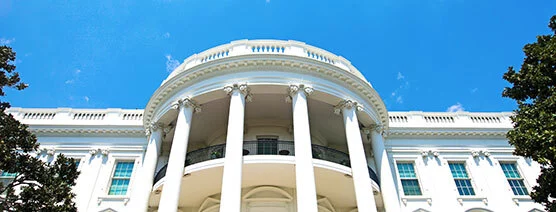Trump's First 100 Days: Private Business
The impending installation of the new Trump administration is likely to have a significant impact on businesses across the country, and the potential change in tax rates could alter business and estate planning.
AT A GLANCE
- A loosening of regulatory restrictions may result in more mergers and acquisitions, particularly in heavily regulated industries.
- Trade policies and tariffs are expected to increase costs for businesses with suppliers and customers.
- Companies should be mindful of the evolving Corporate Transparency Act (CTA) landscape, particularly if the incoming Trump administration opts not to contest recent rulings against this law.
The impending installation of the new Trump administration is likely to have a significant impact on businesses across the country.
Corporate Tax Reform
We expect changes to tax policies, specifically corporate tax and estate related taxes, which may alter succession planning and choice of entity selections, regardless of how individual states may regulate such entities.
Mergers & Acquisitions
The Trump administration may loosen regulatory restrictions, potentially leading to an increase in mergers and acquisitions, particularly in heavily regulated and concentrated industries. This deregulation may lead to more activity in the private equity and venture capital space, as transactions are expected to become easier to implement across the board.
International Trade
Based on the Trump administration's proposed trade policies, we expect to see increased enforcement of trade and sanction-related policies in certain areas. Businesses with customers and suppliers in sanctioned regions may face increased scrutiny and higher costs in connection with international trade. Tariffs may increase costs and force businesses to realign their supply chains over the medium to long term. Distributors, in particular, may experience new challenges with navigating this shifting focus, depending on their sourcing and customer bases.
Corporate Transparency Act
The CTA has effectively been "paused" through the recent imposition of a nationwide injunction against its enforcement. Although the government has appealed this ruling, it is unclear how long this appeal will take and what intermediate steps the appellate court might take during the interim. Even if the CTA is ultimately upheld in the courts, it may still be amended, appealed, or have its enforcement de-prioritized. President-elect Trump vetoed the CTA bill during his first term and has not championed support for this law. Although Congress overrode the veto, the incoming Congress appears more aligned with his priorities on regulatory matters.
However, support for financial regulations does not always follow partisan lines. Repealing or significantly modifying the CTA would take time, and it doesn't appear to be a top priority for the incoming Trump administration. If, however, the incoming administration merely opts not to defend the CTA against the currently existing rulings against the law's constitutionality and enforcement—such rulings would stand. However, if the incoming administration does opt to defend the law, perhaps for precedential reasons, the final outcome will likely take many months before a final resolution is reached.
This article is part of a broader analysis examining the anticipated challenges and opportunities created by an administration change. Attorneys from several different practice areas contributed to this series of articles across multiple legal areas.
